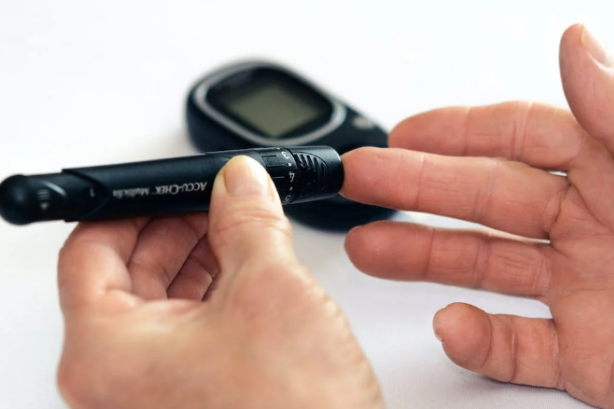While most medical conditions manifest in your body as symptoms before they get serious, cholesterol problems take patients by surprise. Cholesterol is needed in the body to build cells for healthy functioning, but unhealthy levels can also be detrimental. A high cholesterol count can lead to fat deposits in the blood vessels, impacting their functioning.
This article will discuss the symptoms and complications caused by high (and low) cholesterol levels and how you can speak to a doctor online for medical attention.
What High Cholesterol Does To Your Body
Perhaps what makes cholesterol issues so severe is that the only indicator of a problem is an emergency event. Often, patients or individuals suffering from unhealthy cholesterol levels find out when they experience heart attacks or strokes caused by artery blockage.
The only sure way to identify cholesterol problems is through a blood test. Typically, a healthy count of 200 mg/dL is healthy, but anything beyond that indicates serious issues. Ideally, a cholesterol (lipid) test after the age of 20 is important, and then a test once every four to six years is recommended. People suffering from blood pressure issues, weight problems, and substance addiction (smoking or alcohol consumption) should be tested more often.
How would you know when to check your cholesterol? Below are a few reasons to consider a lipid test.
1. Coronary Heart Disease
Coronary artery (heart) disease is a prime example of artery blockage due to plaque in the body. These main arteries that supply blood to the heart often harden or narrow down when cholesterol levels are high. A few common heart attack symptoms include:
- Fatigue
- Shortness of breath
- Constant pain in the jaw, neck, back, or upper abdomen
- Nausea
- Chest pain
2. Heart Attack
Atherosclerosis, an artery blockage, eventually leads to plaque breaking off as small pieces. Slowly, a blood clot forms around this piece, blocking blood flow to heart muscles, and denying the organ nutrients and oxygen. The only symptom of this process would be a heart attack, also known as a myocardial infarction.
A heart attack is a serious medical emergency that often causes irreversible damage to the organ. In the absence of immediate medical attention within a few hours of the attack, it may even prove fatal.
A heart attack has the following symptoms:
- dizziness
- indigestion or nausea
- heartburn
- anxiety
- breathing difficulties
- tightness, pain, or aches in the chest or arms
3. Stroke
A stroke occurs when plaque hinders the flow of blood to the brain. In some instances, the blood supply may be completely cut off, leading to a major stroke. Symptoms of a stroke include:
- disorientation or confusion
- numbness on one side of the body or in the face, arms, or legs
- blurred, doubled, or blacked out vision
- sudden headaches
- abrupt loss of balance
- dizziness and paralysis
4. Other reasons
You may also be more inclined to develop cholesterol issues in the body due to genetic conditions. If both parents or extended families have shown any symptoms, you might suffer from what is called familial hypercholesterolemia; cholesterol issues passed down genetically. Generally, people with this condition have record cholesterol levels of 300 mg/dL or above.
How Unhealthy Cholesterol Levels Worsen Conditions
High cholesterol levels on their own can be controlled by adopting a healthy lifestyle, better-eating patterns, and giving up addictive substances. However, complications occur when there are other health issues also involved.
1. Cholesterol and Diabetes
Diabetes unbalances the mix of good and bad cholesterol levels in the body. Diabetes makes the fusion of LDL with arteries easier, damaging blood vessels in the process. Glucose attaches itself to cholesterol-carrying proteins in the blood, remaining in the bloodstream longer while helping the formation of plaque.
2. Cholesterol and Erectile Dysfunction
Erectile dysfunction treatment is for men who find it difficult to maintain or even achieve an erection during sexual intercourse. Unhealthy cholesterol levels narrow down the blood vessels in important sexual and reproductive organs. High LDL count restricts blood flow to the heart and the penis causing erectile dysfunction.
Conclusion
Cholesterol problems are complicated and need attention because often, they manifest as serious medical emergencies such as heart attacks and strokes. The problem worsens when other health risks are involved, such as diabetes and erectile dysfunction, because treatment for such ailments is complex.
TelMdCare is a health platform employing technology to deliver health solutions with the help of online doctors. You can book an appointment with virtual doctors who deliver their expert services over a telephone or video call. You can also call us and get in touch with a telemedicine doctor willing to assist you to your satisfaction. The best part is that you do not even need insurance to avail of our affordable services because we care more about our patients!
About the Author
The author is a pioneer in the telemedicine healthcare industry. They are passionate about helping patients learn that distance does not matter. Besides working with patients, they like to read about prevalent trends and patterns in technological advancements in medicine.




